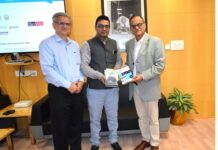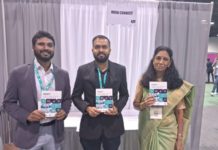
“India will be Cepheid’s first manufacturing site outside US & Europe”
In an exclusive face to face interaction with the BioVoice, Mr Peter Farrell, Executive Vice President, Cepheid, and Mr Jai Shankar Krishnan, President & CEO, Danaher India shared the details about their companies' journey in India, TB elimination efforts and manufacturing plans

































































